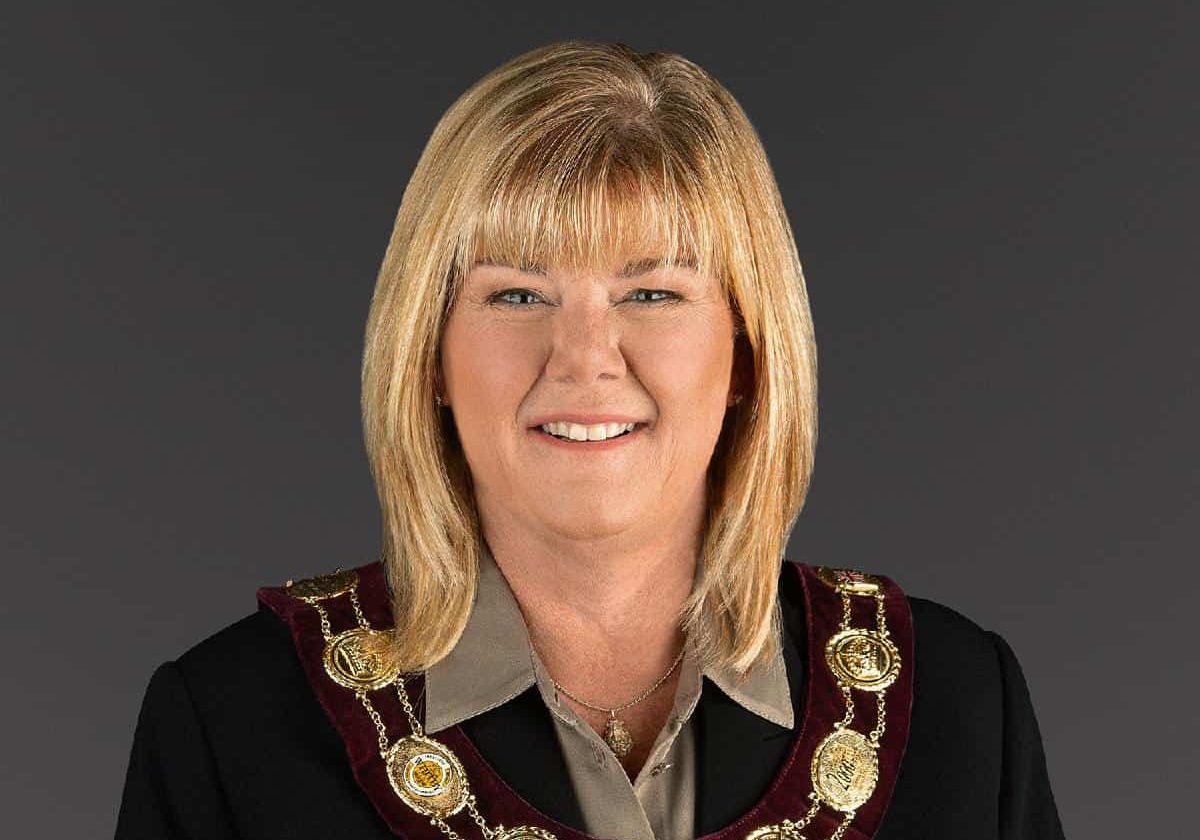Whitby flexes strong mayor budget powers for first time to lessen expected tax hike
Published November 19, 2024 at 4:12 pm

Whitby has released Mayor Elizabeth Roy’s updates to the proposed town budget as she uses her strong mayor budget powers for the first time. Roy says she had to flex these new powers, despite her earlier rejection of them, to minimize an expected tax increase from the proposed 5.7 per cent to 4.5 per cent in 2025.
The Whitby Budget
Though she was granted new powers nearly a year and a half ago, Roy initially pledged not to use them. This changed over the summer of 2024 when Roy decided to flex her new powers for the first time to prioritize the budget. This is also the town’s multi-year budget and the first approved before the fiscal year.
According to Roy, this new multi-year approach “ensures we continue to prioritize implementing action items in Whitby’s Community Strategic Plan.” The town developed this plan of 62 key priorities with feedback from thousands of residents through an online survey and several in-person events.
With this feedback, town staff created a draft budget to cover 2025 to 2027. They also outlined numerous issues adding pressure to the budget, including:
- staffing for a new fire station and Whitby Sports Complex
- negotiated wage settlements and market adjustments to attract and retain staff
- inflationary pressures
- citizen engagement
- updating Whitby’s aging infrastructure
- the Community Strategic Plan action items
This staff budget included a five per cent budget increase every year until 2028. Roy deemed this too steep of an increase and used her strong mayor powers to develop an amended budget with a smaller increase.
She said she decided this was needed given the feedback from residents concerned about budget increases. Previous public engagement sessions have found residents are largely very happy with Whiby’s municipal services, but are not impressed with the cost.
In fact, Whitby has the third-highest average property tax bill in the GTA, according to Zoocasa, at $13,200 a year for a home evaluated at $1 million. By comparison, Ajax is fifth at $12,400 and Oshawa is 14th at $11,200.
While the tax rate between this is generally mid-range compared to the rest of the GTA, Whitby residents get higher bills than average because the average home in Whitby is more expensive than in neighbouring communities. Per the Zoocasa report, the average home in Whitby cost $1.4 million, while in Oshawa the average was $780,000.
Of note, however, Ajax has the benefit of casino dividends (earning $1.05 million last quarter alone) and Whitby has the added expense of collecting its own garbage. Durham Region collects waste from all the other municipalities.
“I made amendments to the draft budget prepared by Town staff on Nov. 4, bringing the proposed tax increase for 2025 from 5.7 per cent down to 4.5 per cent,” Roy wrote, “The proposed tax increases for 2026 and 2027 have also been reduced – from 5.6 per cent in 2026 to 4.9 per cent, and from 5.4 per cent in 2027 to 4.8 per cent. These numbers will be reviewed annually with continued efforts to find efficiencies and new revenue opportunities.”
Finally, the town itself only gets about a third of all the property taxes collected. Just over half of the cash goes to the Regional Government and 13 per cent gets split between the Public and Catholic School Boards.
The Powers That Be
Prior to the recent amendments, Ontario’s mayors had little unilateral power in council meetings. While mayors chaired the meetings, all councillors contributed to council decisions through a majority vote. This meant the mayor could easily be outvoted.
However, this changed under Premier Doug Ford’s Progressive Conservative government. In 2022, Housing Minister Steve Clark (who would later be ousted from the role over the Greenbelt corruption scandal) spearheaded changes to the Ontario Municipal Act, granting enhanced powers to mayors of major cities.
Initially, this only applied to Ottawa and Toronto, but later, it expanded to more than 40 municipalities, including all of Durham Region’s lakeshore communities. The powers include drafting budgets (previously done by municipal staff), city manager appointments, and control of administrative departments.
Perhaps the most notable change was a new veto power over certain by-laws if they conflict with province goals. This veto needs a three-quarter supermajority of council to override, sparking much debate over potential abuses.
The Ontario government said it enacted these new powers to expedite housing development during the province’s ongoing affordability crisis. If this was the goal it has not worked very well, as Ontario-wide “housing starts” (new home construction) continues to lag behind the rest of Canada.
After Whitby was included in the list of Strong Mayor municipalities, Roy pledged to keep a focus on building a cooperative team in the town’s council chamber despite her new powers and inheriting a troubled council rife with ethics investigations.
(This too has only seen marginal success with ongoing conflict in council. Most recently, a meeting was shut down after Councillor Christopher Leahy accused his colleagues of treating Councillor Steve Yamada, who is Japanese-Canadian, with a racial bias. Yamada later got himself ejected from a Durham Region meeting after an off-topic rant about carbon pricing.)
During this period, relations between Roy and Ford grew increasingly fraught due to several factors. Most prominent of these was Ontario’s foot-dragging on funding the expected Whitby hospital and the province’s initial failure to reward the town for reaching its housing goals.
Additionally, Roy accused the Province of neglecting their budgetary responsibilities and instead downloading those costs to the municipal level. She says that nearly one-third of municipal expenses go toward projects and services within provincial jurisdiction under Canada’s distribution of powers.
INdurham's Editorial Standards and Policies





